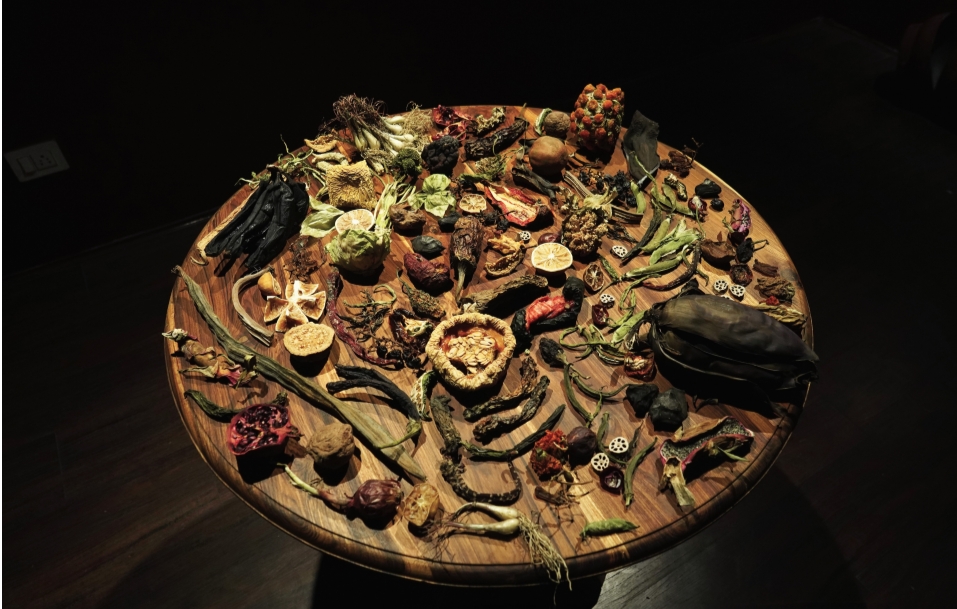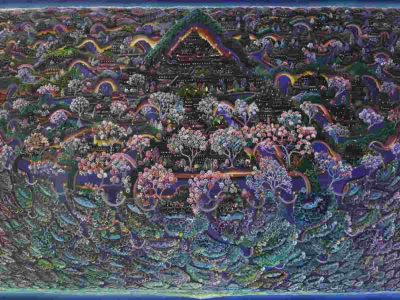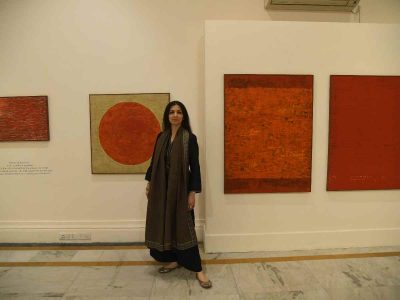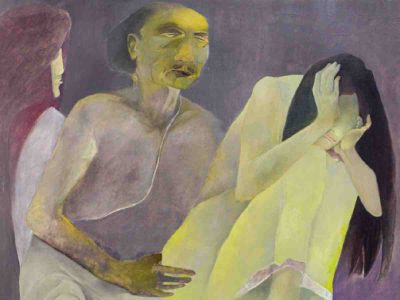The room is awash in red as if one is inside a whale’s belly or a luminous furnace. It turns out to be an eerie kitchen.
Glass shards pierce a ball of kneaded dough, evoking Christ’s crown of thorns.
Shrivelled pieces of fruits, flowers and vegetables with mild odours dancing overhead adorn a charcuterie board, capturing the essence of a 3-D vanitas still life.
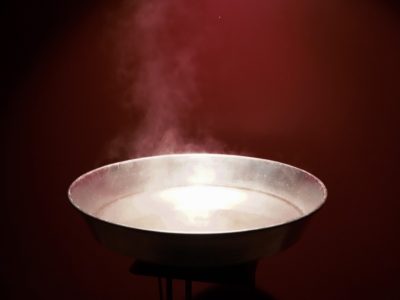
Metal pans, filled with flour and hand impressions, hint at an abandoned chore.
Used wooden ladles and metal utensils dangle from a colossal net ‘chandelier’, hanging in silence until propelled into a chaotic dance, casting dramatic shadows on the walls.
The non-binary artist Tsohil Bhatia may have titled their new solo exhibition, ‘This Fire That Warms You’, a parallel show at the India Art Fair , showing at Gallery Blueprint12, which is ongoing till March 2. With the seemingly morbid installations in it, however, the show could have been named ‘This Fire That Warns You’.

While the two sentences together produce a slant rhyme with ‘warm/warn’, these reflect the coexistence of dualities in nature, like the two sides of the same coin.
The benevolent homemaker is no different.
In the realm of domesticity, they will carefully use a dough ball to collect shattered glass from the floor to keep family members out of harm’s way.
When pushed to the curb, however, unsuspecting caregivers have poisoned meals, turned kitchen objects into murder weapons, let the fresh produce in the fridge rot, and left the cooking halfway.
The homemaker plays with fire daily, tempering its flames while cooking three meals. Fire warms and heals but also burns and destroys. Bhatia demonstrates this thought via a video installation on a loop that shows them interacting with crackling fire, as if bathing in its flames, some of their hair burnt crisp in the process.
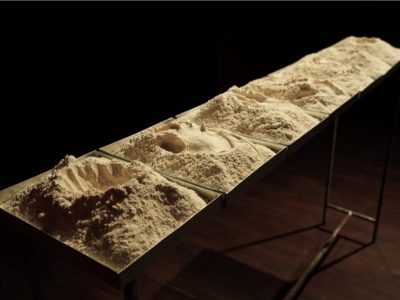
The viewing experience conjures ideas of slow-cooked food, ASMR sound, Hindu funeral pyre, warmth on cold, wintry nights, and anger/aggression.
“Many a time, I wonder what would happen if all the homemakers of the world went on strike and decided to burn the place down. The domestic space of the kitchen and the homemaker, then, hold immense power, deserve the same kind of respect and must not be taken for granted,” says Bhatia, who identifies as a ‘homemaker,’ placing the term at par with their other avatars as artist and professor of Interdisciplinary Studio course at Parsons School of Design.
The idea for the show stems from Bhatia’s own experience of forgetting about an apple in their fridge, chancing upon its rotting carcass only after two years.
The noisy trove of utensils replicates the utensil cabinet in his kitchen when the desired cooking object must be oh-so-carefully taken out, otherwise the whole pile could come crashing down.
Bhatia, through their co-founded Red Flower Collective, has hosted large community meals as part of their art practice, following in the footsteps of their mother, who loves cooking and having friends over.
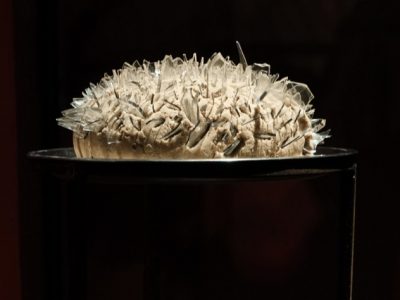
Their association with food, however, was not always smooth sailing, and this show in a way plays testament to those days, basically their growing years.
“I used to hate eating food. I would stuff my pocket with the food from my plate and flush it down later, which made my mother angry. That attitude changed when I moved to Bangalore to study at the Srishti School of Design and had to cook my own meals. My friends and I did not like the mess food, and I would end up cooking for them as well. That changed my whole perspective.”
Bhatia says that gender has not come in the way of acceptance from family, friends and even strangers to their association with the title of homemaker.
“In fact, my mother is proud that I run my own household back in the US. I love the art of mundane choreography. That means making my bed, making myself a coffee, having my own towel choreography that I see as a dance form,” says Bhatia, keen to continue pursuing the genre of kitchen-based sculpture.

